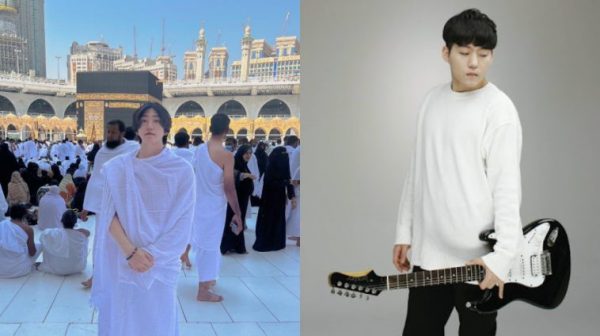From a singer to a Muslim🌙:

🌟 Introduction of Daud Kim
Daud Kim, formerly known as Jay Kim, is a South Korean YouTuber, singer, and former K-pop artist who gained international recognition after embracing Islam in 2019. Born on July 21, 1992, in Seoul, South Korea, he initially pursued a career in music and entertainment, appearing on popular Korean shows and building a strong online presence.
🎤 Early Life and Career
Daud Kim began his public life in the Korean entertainment industry. He was a singer and television personality and gained attention through appearances on various Korean shows, including Korea’s Got Talent. His stage name was Jay Kim, and he worked in music, acting, and content creation.
🌍 Exposure to Islam
While traveling to Muslim-majority countries—particularly Indonesia and Malaysia—Daud Kim was deeply impressed by the kindness, discipline, and spirituality of the Muslims he encountered.
He began researching Islam, reading the Qur’an, and visiting mosques out of curiosity and a genuine desire to understand the religion.
🕋 Conversion to Islam
In September 2019, Daud Kim officially embraced Islam by saying the Shahada (declaration of faith) at the Seoul Central Mosque in South Korea. He changed his name to Daud (David) to reflect his new faith.
His public conversion was met with both support and criticism. He shared his journey on his popular YouTube channel, where he documents his spiritual growth, Islamic learning, and life as a Korean Muslim.
🕌 Life as a Muslim
Since converting, Daud Kim has:
- Performed Umrah (minor pilgrimage) in Makkah
- Learned to pray (Salah) and read the Qur’an
- Created videos promoting interfaith understanding and Islamic values
- Announced plans in 2024 to build a mosque in South Korea, showing his commitment to the Muslim community.
⚖️ Challenges and Controversies
Daud Kim’s journey hasn’t been without personal challenges. He has faced:
- Criticism from some fans and social media users
- Allegations from his past that resurfaced after his conversion
- Struggles to adapt to a completely new lifestyle and spiritual path
Despite these issues, he continues to publicly express his love for Islam, Prophet Muhammad ﷺ, and the Muslim Ummah.


